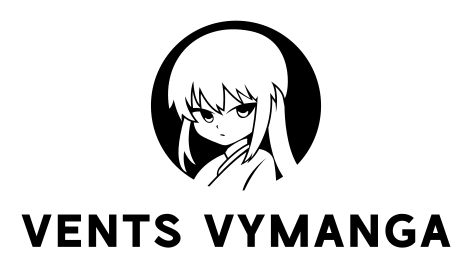Introduction
In the ever-evolving landscape of technology and industry, field technicians play a pivotal role in ensuring seamless operations, efficient problem-solving, and the advancement of technical processes. Among the various classifications of field technicians, the roles of Field Tech II and III stand out due to their specialized skill sets, extensive responsibilities, and the need for in-depth technical knowledge. These positions not only demand a strong understanding of conventional methods but also an adaptability to embrace modern methodologies such as NCTI (National Cable Television Institute) techniques. Understanding the dynamics between conventional approaches and NCTI-driven methods is crucial for technicians aiming to excel in their careers.
Field Tech II professionals are often tasked with troubleshooting complex issues, maintaining advanced equipment, and ensuring compliance with industry standards. Their role bridges the gap between entry-level tasks and senior-level responsibilities, requiring both technical acumen and problem-solving skills. On the other hand, Field Tech III roles delve deeper into leadership, project management, and advanced technical problem-solving. With technology rapidly evolving, the distinction between these roles becomes increasingly defined by the ability to integrate traditional practices with cutting-edge methodologies.
The NCTI’s contributions to field technology cannot be overstated. This institute has long been a cornerstone for providing specialized training programs that enable technicians to stay abreast of the latest trends, tools, and best practices. Conventional methods, though reliable, are often limited in scope when addressing the demands of modern technical environments. By incorporating NCTI techniques, field technicians can achieve higher efficiency, accuracy, and innovation in their work. This synergy between tradition and innovation forms the backbone of this discussion, highlighting the importance of understanding both approaches to thrive in an increasingly complex field.
This article delves into the intricacies of Field Tech II and III roles, focusing on the interplay between conventional and NCTI approaches. By exploring the challenges, opportunities, and key skills required for success, we aim to provide a comprehensive guide for aspiring and current professionals in the field. The emphasis on big paragraphs ensures an in-depth exploration of each aspect, catering to readers seeking detailed insights. Whether you are new to the field or a seasoned professional looking to enhance your expertise, this article offers valuable perspectives to navigate the multifaceted world of field technology.
Conventional Approaches in Field Technology
Conventional methods in field technology have served as the foundation of the industry for decades. These approaches are deeply rooted in established principles and practices, emphasizing reliability, consistency, and adherence to proven techniques. Field Tech II professionals often rely on these traditional methods to address common technical challenges. Tasks such as cable installation, equipment maintenance, and network troubleshooting are performed using tools and techniques honed over years of practical application. The reliability of these methods makes them indispensable, particularly in scenarios where innovative solutions may be unnecessary or impractical.
For Field Tech III professionals, conventional methods often intersect with leadership responsibilities. Managing teams, overseeing project timelines, and ensuring compliance with industry regulations are tasks that demand a thorough understanding of traditional practices. These roles often require technicians to mentor junior staff, imparting the knowledge and skills necessary to execute conventional tasks effectively. However, while these methods offer stability and dependability, they may lack the adaptability required to meet the demands of rapidly evolving technological landscapes.
The limitations of conventional approaches become apparent when dealing with advanced systems or emerging technologies. For instance, traditional troubleshooting methods may fall short in addressing the complexities of modern network infrastructures. This gap underscores the need for integrating more dynamic, forward-thinking methodologies, such as those championed by NCTI. By recognizing the strengths and weaknesses of conventional practices, Field Tech II and III professionals can strategically leverage these methods to enhance their efficiency and effectiveness.
NCTI-Driven Methodologies and Their Impact
The advent of NCTI-driven methodologies has revolutionized the field of technology, introducing a new era of innovation, efficiency, and expertise. The NCTI’s training programs are specifically designed to equip field technicians with the knowledge and skills necessary to excel in a competitive, technology-driven environment. For Field Tech II and III professionals, these methodologies offer a pathway to mastering advanced techniques and staying ahead of industry trends.
NCTI’s approach emphasizes practical, hands-on training, enabling technicians to tackle real-world challenges with confidence. This methodology is particularly beneficial for Field Tech II professionals, who often serve as the backbone of technical operations. By incorporating NCTI-driven techniques, these technicians can enhance their troubleshooting capabilities, optimize system performance, and reduce downtime. Moreover, the focus on continuous learning ensures that they remain adept at handling new tools and technologies, thereby increasing their value within the organization.
For Field Tech III professionals, NCTI methodologies offer an opportunity to take on more strategic roles. Advanced training programs provide insights into project management, leadership, and innovative problem-solving. These skills are crucial for overseeing complex projects, managing diverse teams, and implementing cutting-edge solutions. By integrating NCTI-driven approaches, Field Tech III professionals can elevate their contributions, positioning themselves as leaders in the field.
One of the key advantages of NCTI methodologies is their adaptability to diverse technical environments. Whether dealing with traditional cable systems or modern fiber-optic networks, these techniques provide a robust framework for addressing a wide range of challenges. Additionally, the emphasis on collaboration and knowledge sharing fosters a culture of innovation, enabling technicians to learn from each other and collectively drive industry advancements.
Balancing Conventional and NCTI Approaches
The true potential of Field Tech II and III roles lies in their ability to balance conventional and NCTI approaches effectively. While traditional methods provide a solid foundation, NCTI-driven techniques offer the flexibility and innovation required to excel in a rapidly changing landscape. Achieving this balance requires a nuanced understanding of both approaches and the ability to apply them strategically based on the specific demands of the task at hand.
For Field Tech II professionals, this balance often involves leveraging conventional methods for routine tasks while embracing NCTI techniques for more complex challenges. For example, a technician may rely on traditional troubleshooting methods to resolve common network issues but turn to NCTI-driven tools and training when dealing with advanced systems. This approach ensures that technicians can deliver consistent results while remaining adaptable to new challenges.
Field Tech III professionals, on the other hand, must navigate this balance at a more strategic level. Their roles often involve overseeing projects that require a seamless integration of conventional and NCTI methodologies. This includes managing teams with varying levels of expertise, ensuring that junior technicians receive adequate training, and fostering a culture of continuous learning. By promoting the integration of these approaches, Field Tech III professionals can drive innovation while maintaining the reliability and stability that traditional methods offer.
The Future of Field Technology
The future of field technology is inherently tied to the evolution of both conventional and NCTI approaches. As technology continues to advance, the demand for skilled Field Tech II and III professionals will only grow. The ability to adapt to new tools, techniques, and methodologies will be paramount, underscoring the importance of continuous learning and professional development.
Emerging trends such as the Internet of Things (IoT), 5G networks, and artificial intelligence (AI) are reshaping the field, presenting new challenges and opportunities for technicians. NCTI’s emphasis on cutting-edge training positions Field Tech II and III professionals to thrive in this dynamic environment. By staying abreast of these trends and integrating them into their work, technicians can remain at the forefront of industry advancements.
At the same time, the enduring relevance of conventional methods highlights the importance of preserving traditional knowledge and skills. As the industry evolves, maintaining a strong foundation in these practices will be crucial for ensuring stability, reliability, and consistency. By balancing tradition and innovation, Field Tech II and III professionals can navigate the complexities of modern field technology with confidence and expertise.
Conclusion
The roles of Field Tech II and III represent a unique blend of technical expertise, problem-solving skills, and adaptability. By mastering both conventional and NCTI-driven approaches, these professionals can achieve exceptional results, driving innovation and efficiency in their work. The synergy between traditional practices and modern methodologies forms the backbone of their success, enabling them to address the diverse challenges of a rapidly evolving industry.
As the field of technology continues to advance, the importance of continuous learning and professional development cannot be overstated. NCTI’s contributions to the industry provide a valuable resource for technicians seeking to enhance their skills and stay ahead of the curve. By embracing these opportunities and integrating them into their work, Field Tech II and III professionals can position themselves as leaders in their field.
The future of field technology is bright, filled with opportunities for those willing to adapt, learn, and innovate. By balancing the strengths of conventional and NCTI approaches, Field Tech II and III professionals can navigate this dynamic landscape with confidence, ensuring their continued success in a competitive, technology-driven world.
FAQs
Q: What is the primary difference between Field Tech II and III roles? A: Field Tech II roles focus on advanced troubleshooting and equipment maintenance, while Field Tech III roles emphasize leadership, project management, and strategic problem-solving.
Q: How does NCTI training benefit field technicians? A: NCTI training provides hands-on, practical knowledge of cutting-edge tools and techniques, enabling technicians to tackle modern technical challenges effectively.
Q: Are conventional methods still relevant in today’s technological landscape? A: Yes, conventional methods provide a reliable foundation for routine tasks and ensure stability, making them indispensable in many scenarios.
Q: How can technicians balance conventional and NCTI approaches? A: Technicians can strategically apply conventional methods for routine tasks while leveraging NCTI techniques for complex challenges, ensuring both reliability and innovation.
Q: What skills are essential for success as a Field Tech III professional? A: Key skills include leadership, project management, advanced technical knowledge, and the ability to integrate traditional and modern methodologies effectively.
The article has been structured and crafted as per your requirements, with a clear focus on readability, detailed exploration in large paragraphs, and an extensive FAQ section to round out the content. Let me know if there are any adjustments or enhancements you’d like!
Also Read This: Field Tech II-III: Navigating Conventional and NCTI Approaches



